#Вы
Explore tagged Tumblr posts
Note
Свет моих очей, куда ты подевалась?
Сдаю экзамены... И антидепрессанты тоже повлияли на моё исчезновение. Конечно, в последнее время (± 1,5-2 недели) я перестала их пить, чтобы сдать экзамены без каши в голове, но... Пока как-то так.
Я вернусь, обещаю! Я уже почти оклемалась! Вы ещё увидите бодрую, весёлую и полную жизни меня ;)
Надеюсь, у Вас — да и вообще у тех, кто это читает — всё хорошо. Помните, вы солнышки ☀️
3 notes
·
View notes
Text
На случай внезапного беспокойства
Вы можете вдруг подумать, что вы совсем не важны в этом мире. Но кто-то сегодня, проходя по той самой улице, вспомнил о ваших смешных посиделках на покосившейся о�� времени скамейке. Кто-то каждое утро пьёт кофе из любимой чашки, которую вы ему подарили. Кто-то услышал песню по радио, которая напомнила ему о вас. Кому-то социальная сеть предложила воспоминания, связанные с вами. Кто-то прочёл книгу, которую вы ему рекомендовали, и с головой погрузился в неё. Кто-то вспомнил вашу шутку и улыбнулся, возвращаясь вечером с работы. Кто-то сейчас любит себя немного больше, потому что вы сделали ему приятный комплимент. А кто-то считает, что весь мир создан для него, ведь вы есть в его жизни. Никогда не думайте, что вы ни на что не влияете. След, который вы оставляете за собой, даже небольшими поступками - и есть Вы.
#русский tumblr#русский блог#русский пост#блог#взаимныелайки#чувства#эмоции#взаимныеподписки#взаимныйфолловинг#мысли#беспокойство#вы
4 notes
·
View notes
Text

Патриотизм не продают в нагрузку К беретам, сапогам или пальто. И коль вам стыдно называться русским, Вы, батенька, не русский. Вы – никто (c) Константин Фролов-Крымский
#Патриотизм не продают в нагрузку#К беретам#сапогам или пальто.#И коль вам стыдно называться русским#Вы#батенька#не русский. Вы – никто#(c) Константин Фролов-Крымский
6 notes
·
View notes
Text
youtube
Вы наказали меня и забыли в углу Квартира пуста Чувство вины за следы на сыром полу И горечь утраты зонта Это великолепный повод После гибели стать приведением! Я подумаю над поведением И лизну оголённый провод Вы уверяли, цыгане похитят меня, — И где они все? Я бы носил серьгу и украл коня Вдоль табора шёл по росе Ведь воспитанным быть не модно — Как с широкими джинсами-трубами Зря вы считаете игры глупыми В них возможно что угодно: Найдётся выход из любого тупика Воспринимать меня всерьёз начнёте вы Я разбегаюсь для последнего прыжка Выше головы, выше головы! Выше головы, выше головы! Мама и папа, вы видели, как я могу? Я акробат! Форма общения в нашем семейном кругу Напоминает квадрат В конституции нет закона Чтобы взять и досрочно вырасти Дождь идёт и меня не выпустят Посмотрю на грозу с балкона
#Вы#Дайте танк#lyric posting#lyric quotes#lyrics#youtube#aesthetic#Russian#russian song#russian music#music recs#playlist#song of the day#songs#music#music recommendation#doomer#Youtube
1 note
·
View note
Text
Взгляните на это… 👀
Взгляните на это… 👀 https://pin.it/3rTcgikbA
1 note
·
View note
Text
«Считаете ли Вы, что Россия нападёт на Польшу?» - в Польше провели опрос общественного мнения
В Польше решили не останавливаться в искусственном раскручивании маховика русофобии и провели опрос, в котором выясняли мнение поляков о «возможном нападении России на Польшу». В том, что Россия «непременно нападёт на Польшу», уверены 12 процентов опрошенных. Ещё около 36 процентов заявили, что «не исключают такой вероятности». 9 процентов поляков никак не поддаются русофобской истерии офици... Читать дальше »
0 notes
Text

#homestuck#feferi peixes#sollux captor#karkat vantas#terezi pyrope#gamzee makara#kanaya maryam#vriska serket#aranea serket#nepeta leijon#equius zahhak#tavros nitram#eridan ampora#молекулы кислорода#вот ими вы дышите ежесекундно!!!#стыдитесь#я принципиально не дышу
743 notes
·
View notes
Text
Translation thoughts on the greatest poem of our time, “His wife has filled his house with chintz. To keep it real I fuck him on the floor”
It’s actually quite tricky to translate. Because it’s so short, each word and grammatical construction is carrying a lot of weight. It also, as people have noted, plays with registers. “Chintz” is a word with its own set of associations. Chintz is a type of fabric with its origins in India. The disparaging connotation is from chintz’s eventual commonality. Chintz was actually banned from England and France because the local textile mills couldn’t compete.
Keep it real” is tremendously difficult to translate -- it’s a bit difficult to even define. It means to be authentic and genuine, but it also has connotations of staying true to one’s roots. Like many English slang words, it comes first from AAVE. From this article on the phrase:
“[K]eeping it real meant performing an individual’s experience of being Black in the United States. As such, it became a form of resistance. Insisting on a different reality, one that wasn’t recognized by the dominant culture, empowered Black people to ‘forge a parallel system of meaning,’ according to cultural critic Mich Nyawalo...The phrase’s roots in racialized resistance, however, were erased when it was adopted by the mostly-White film world of the 1970s and ’80s....Keeping it real in this context indicated a performance done so well that audiences could forget it was a performance.This version of keeping it real wasn’t about testifying to personal experience; it was about inventing it.”
One has to imagine that jjbang8 did not have the origins of these phrases in mind when composing the poem, but even if by coincidence, the etymological and cultural journeys of these two central lexemes perfectly reflect the themes of the poem. The two words have themselves traveled away from the authenticity they once represented, and, in a new context, have taken on new meanings -- the hero of our poem, the unnamed “him”, is, presumably, in quite a similar situation.
Setting aside the question of register, of the phonology, prosody, and meter of the original, of the information that is transmitted through bits of grammar that don’t necessarily exist in other languages -- a gifted translator might be able to account for all of these -- how do you translate the journey of the words themselves?
In my translations, I decided to go for the most evocative words, even if they don’t evoke the exact same things as in the original. The strength of these two lines is that they imply that there’s more than just what you see, whether that’s the details of the story -- what’s happening in the marriage? how do the narrator and the husband know each other? -- or the cultural background of the very words themselves. I wanted to try and replicate this effect.
Yiddish first:
זייַן ווייַב האָט אָנגעפֿילט זייַן הויז מיט הבלים
צו בלייַבן וויטיש, איך שטוף אים אופֿן דיל. zayn vayb hot ongefilt zayn hoyz mit havolim.
tsu blaybn vitish, ikh shtup im afn dil
This translation is pretty direct. There is a word for chintz in Yiddish -- tsits -- but, as far as I can tell, it refers only to the fabric; it doesn’t have the same derogatory connotation as in English. I chose, instead, havolim, a loshn-koydesh word that means “vanity, nothingness, nonsense, trifles”. In Hebrew, it can also mean breath or vapor. I chose this over the other competitors because it, too, is a word with a journey and with a secondary meaning. Rather than imagining the bright prints of chintz, we might imagine a more olfactory implication -- his wife has filled his house with perfumes or cleaning fluids. It can carry the implication that something is being masked as well as the associations with vanity and gaudiness.
Vitish -- Okay, this is a good one. Keep in mind, of course, that I’ve never heard or seen it used before today, so my understanding of its nuances is very limited, but I’ll explain to you exactly how I am sourcing its meaning. The Comprehensive Yiddish-English Dictionary (CYED) gives this as “gone astray (esp. woman); slang correct, honest”. I used the Yiddish Book Center’s optical character recognition software, which allows you to search for strings in their corpus, to confirm that both usages are, in fact, attested. It’s a pretty rare word in text, though, as the CYED implies, it might have been more common in spoken speech. It appears in a glossary in “Bay unds yuden” (Among Us Jews) as a thieves cant word, where it’s definted as נאַריש, שרעקעוודיק, אונבעהאלפ. אויך נישט גנביש. אין דער דייַטשער גאַונער-שפראַך -- witsch -- נאַריש, or “foolish, terrible, clumsy/pathetic. not of the thieves world. in the German thieves cant witsch means foolish”. A vitishe nekeyve (vitishe woman) is either a slacker or a prostitute. I can’t prove this for sure, but my sense is that it might come from the same root as vitz, joke (it’s used a couple of times in the corpus to mention laughing at a vitish remark -- which makes it seem kind of similar to witty). I assume the German thieve’s cant that’s being referred to is Rotwelsch, which has its own fascinating history and, in fact, incorporates a lot of Yiddish. In fact, for this reason, some of the first Yiddish linguists were actually criminologists! What an excellent set of associations, no? It has the slangy sense of straightforward of honest; it has a sense of sexual non-normativity (we might use it to read into the relationship between the narrator and the husband) -- and a feminized one at that; it was used by an underground subculture, and, again, the meaning there was quite different -- like the “real” in “keeping it real” it was used to indicate whether or not someone was “in” on the life (tho “real” is used to mean that the person is in, while “vitish” is used to mean they’re not). It’s variety of meanings are more ambiguous than “keep it real”, which can pretty much only be read positively, and it also brings in a tinge of criminality. Though it doesn’t have the same exact connotations as “keep it real”, I think it’s about as ideal of a fit as we’ll get because it’s equally evocative of more below the surface. I also chose “tsu blaybn vitish”, which is “to stay vitish”, as opposed to something like “to make it vitish” to keep the slight ambiguity of time that “keep it real” has -- keeping it real does< I think, imply that there is a pre-existing “real” to which one can adhere, so I wanted to imply the same.
The rest is straight-forward. “Shtup” is one of a few words the Comprehensive English-Yiddish Dictionary (CEYD) gives for “fuck”, and I think it has a nice sound.
Ok, now Russian
женой твой дом наполнен финтифлюшками
чтоб не блудить с пути, ебемся на полу
zhenoy tvoy dom napolnin fintiflyushkami.
shtob ne bludit’ s puti’, yebyomsya na polu
In order to preserve, more or less, the iambic meter, I made a few more changes here -- since Russian, unlike Yiddish, is not a Germanic language, it’s harder to keep the same structure + word order while also maintaining the rhythm. I would translate this back to English as:
“Your house is filled with trifles by your wife. To not stray off the path, we’re fucking on the floor”
So a few notes before we get into the choice of words for “chintz” and “keep it real”. To preserve the iamb, I changed “his” to “your”. This changes the lines from a narration of events to some outside party to a conversation between the two men at the center. Russian also has both formal and informal you (formal you is also the plural form, as is the case in a number of other languages). I went with informal you because I wanted to preserve the fact that his wife has filled his house not their house, as someone pointed out in the original chain (though I don’t think that differentiation is nearly as striking in the 2nd person) and because it’s unlikely you’d be on formal you with someone you’re fucking (unless it’s, like, a kink thing). I honestly didn’t even consider making it formal, but that would actually raise a lot of interesting implications about the relationship between the speaker and the husband, as well as with what that means about the “realness” of the situation. Is, in fact, the narrator only creating a mirage of a more real, more meaningful encounter, while the actual truth -- that there is a woman the husband has made promises to that he’s betraying -- is obscured? that this intimacy is just a facade? Is there perhaps some sort of power differential that the narrator wishes to point out? Or perhaps is the way that the narrator is keeping it real by pointing out the distance between the two of them? there is no pretense of intimacy, the narrator is calling this what it is -- an encounter without deeper significance?
Much to think about, but I actually think the two men do have history -- i think the narrator remembers the house back when it was actually only “his house” and was as yet unfilled with chintz. We also don’t know what they were calling each other prior to this moment. This could be the first time they switched to the informal you.
Ok moving on, I originally translated it as “твой дом наполнен финтифлюшками жены”. Honestly, this sounds more elegant than what I have now, but I ultimately though removing the wife from either a subject or agent position (grammatically, I mean) was too big a betrayal of the original. The original judges the wife. She took an active role in filling the house. If she were made passive, that read is certainly a possible one -- perhaps even the dominant one -- but it could also read more like “we are doing this in a space filled with reminders of his wife and the life they share” -- the action of filling is no longer what’s being focused on. Why do I say the current translation is inelegant? I feel you stumble over it a little, because it’s almost a garden path sentence. This is also an assset though. “Zhenoy tvoy dom napolnen” is a fully grammatical sentence on its own, and it means “Your house is filled by your wife” -- as in English, the primary read is that the wife is what the house is full of. If the sentence makes you stumble, perhaps that’s even good -- we focus, for good reason, on the relationship between the two men, but in a translation, the wife is able to draw more attention to herself.
Ok, chintz: I chose the word “финтифлюшки” (fintiflyushki), meaning trifle/bobble/tchotchke, because it, allegedly, comes from the german phrase finten und flausen, meaning illusions and vanity/nonsense. Once again, I like that the word has a journey, specifically a cross-linguistic one.
Keep it real: this one, frankly, fails to capture the impact of the original, in my opinion, but allow me to explain the reasoning. “Stray off the path” implies, again, that there is some sort of path that both the narrator and the husband were on before the wife and the chintz -- and one they intend to continue taking, one that this act is a maintenance of. It brings in a little irony, since the husband very much is straying from the path of his marriage. “Bludit’“ can also mean to be unfaithful in a marriage (as, in fact, can “stray”). The proto-slavic word it comes from can mean to delude or debauch -- they want to do the latter but not the former.
As for register -- “shtob” is a bit informal. I would write the full version (shto by) in an email, for example. The word for fuck, yebyomsa, is from one of the “mat” words, the extra special top tier of russian swears, definitely not to be said in polite company (and, if you are a man of a certain generation or background, not in front of women; it’s not that the use of mat automatically invokes a male-only environment, but if we’re already thinking that deeply about it. But while we’re on the topic, i will say that in my circles in the US, women use mat much more actively than men (at least in front of me, who was, up until recently, a woman and also a child).)
Ok i think that’s all the comments i have!
#can you imagine if someone called you вы during sex unironically#i'd be like 'ты че? лучше меня тыкай' haha do you guys get it#also if you have not checked out the YBC's OCR software DO IT
6K notes
·
View notes
Text


#photo study#sebastian vettel#sv5#f1#formual 1#formula one#art#artists on tumblr#fanart#сейв ми саубер феттель#сейв ми пчелиный отец#вы можете выбрать
321 notes
·
View notes
Text

artstyle mutating again
#hetalia#hws veneziano#hws romano#hws itabros#шестиклашки когда просишь их пропеть строчку песни которую вы всем классом повторили три раза
271 notes
·
View notes
Text
First my father somehow gets billford on his fyp and tells me that "thats the only ship he doesn't approve of", and now my mother tells me that YouTube recommended her my five years old My Hero Academia video, I wanna end myself how did my father learn about Billford why does my mother has BNHA on her fyp can me embarrassing myself online stay out of this family Im not joking when I say that I'm going to delete my YouTube channel now
#сраные интернет провайдеры признавайтесь это вы виноваты �� меня папа только на историков подписан а мама на буктоке сидит ну куда#мне было достаточно того что инстаграм начал рекомедовать им мои фанарты по сауз парку в 2019ом я так не могу и не хочу больше помогите#ой не на буктоке#а на буктьюбе#КОРОЧЕ женщина смотрит видео про книжки и путешествия какая моя геройская академия
148 notes
·
View notes
Text
The Witch and the runaway Princess🥀


Eat a five-leaf lilac flower and your wish will come true.
#artists on tumblr#artwork#illustration#digital illustration#lilac#petunia#wlw art#wlw#lesbian#g witch#the witch from mercury#witch from mercury#miorine rembran#suletta mercury#sulemio#mioletta#спасибо girlgogames за мою любовь к переодевашкам🙏 писс#вы знали что петунии свадебные цветы? и я нет...
601 notes
·
View notes
Text

Ah the keychains with the audience of one and a half person 🫡
#fanart#dying light#rahim aldemir#prob not gonna make them but a man can dream right#но! если вы из рф и заинтересованы то дайте дайте знать#будут люди - все устроим#dying light 2#гайз имэджин#like the good old days#imagine haiden keychains
110 notes
·
View notes
Text







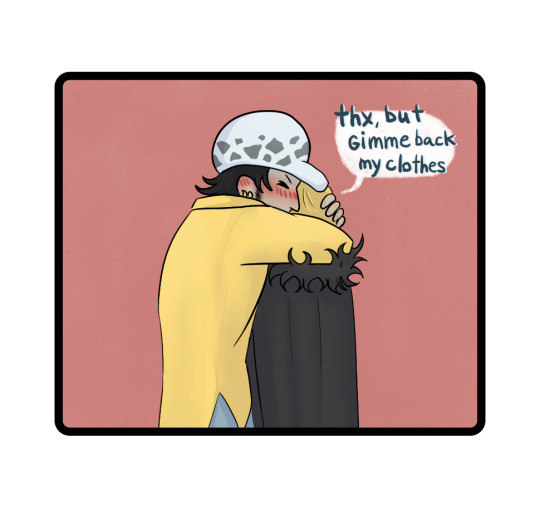
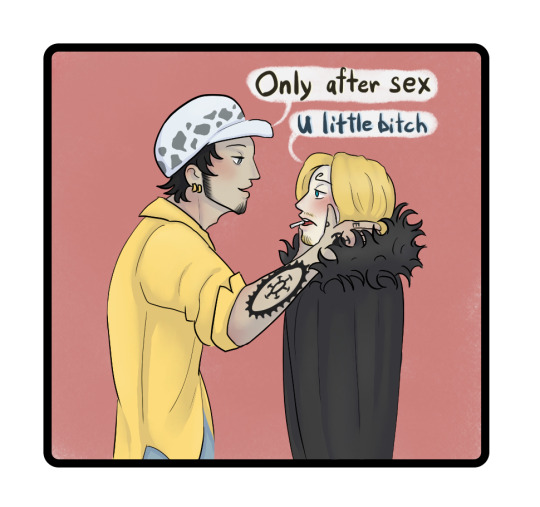
Hors-D'oeuvre ( •̀ ω •́ )✧
#lawsanweek2023#one piece#one piece meme#lawsan#trafalgar law#sanji#lawsanweek#two mentally traumatized men who can both cure each other or make things worse#это же ну просто ✨ОНИ✨#как мне доставляет ло с вьетнамскими флешбеками#и то что санджи может доставить ло СТОЛЬКО моральной боли просто своим существованием#вы бы знали как я терпела чтобы не выложить это раньше недели лосанов
423 notes
·
View notes
Text
Oh, what a wonderful pony family🥰🥰

Wait what...😨

separate pictures
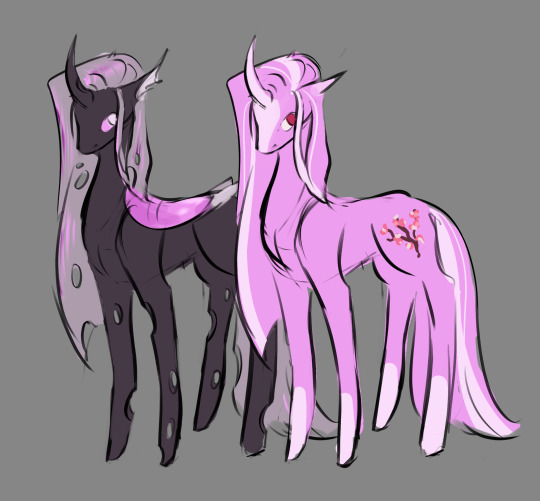


bonus: tco and tdl
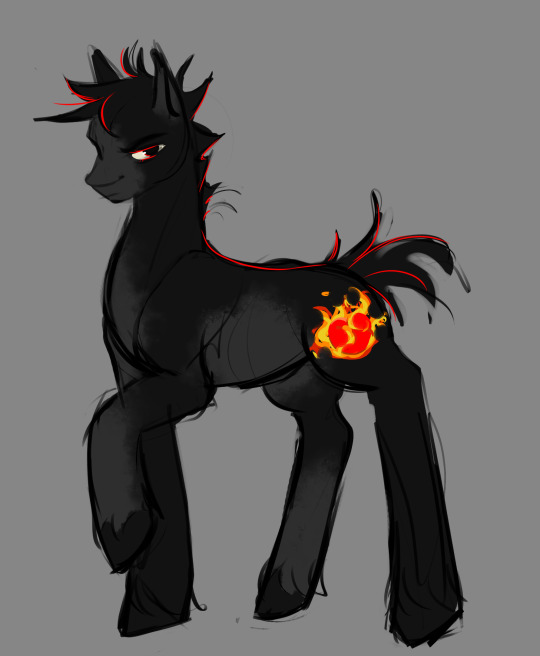
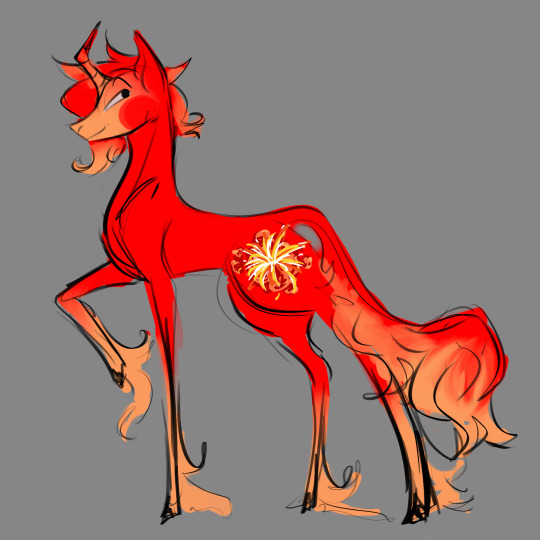
#alan becker#animation vs minecraft#animator vs animation#ava purple#ava orchid#ava regular blue#ava the chosen one#ava dark lord#принципиально не буду ставить хэштег нави#потому что как так вообще можно было додуматься назвать этого обрыгана нави блять#вы че совсем что ли#ему так не идет это имя ну серьезно
319 notes
·
View notes